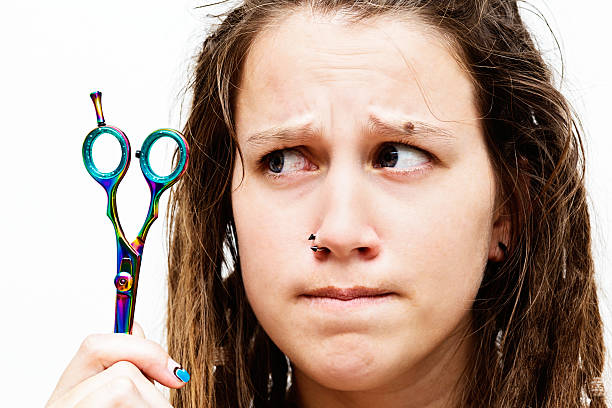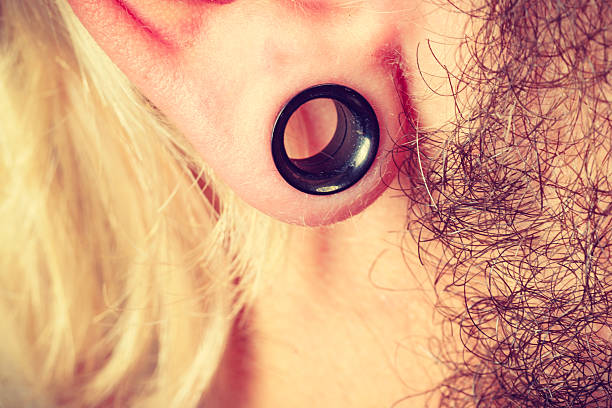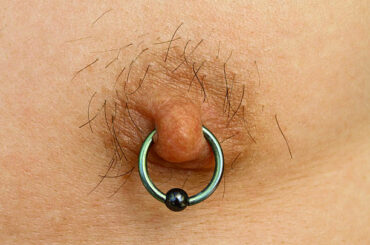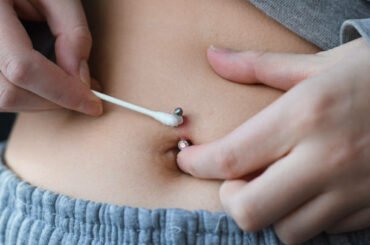Contents
Can Piercings Make You Sick?
Piercings, those stylish adornments that have adorned human bodies for centuries, are undeniably trendy. From earlobes to noses, eyebrows to belly buttons, piercings have become a form of self-expression and fashion statement. But amidst the allure and excitement of getting a new piercing, it’s crucial to pause and consider: Can piercings make you sick?
Understanding Piercings: More Than Just Decoration
Before delving into the potential health risks, let’s take a moment to appreciate the artistry and significance behind piercings. They’re not just about decoration; they hold cultural, historical, and personal meanings for many individuals.
Piercings have been a part of human culture for millennia, with evidence dating back to ancient civilizations like the Egyptians and Mayans. They symbolize rites of passage, religious beliefs, and tribal affiliations. For example, in some cultures, nose piercings are symbols of marriage or social status, while ear piercings may signify a coming of age.
Today, they’re a way to express individuality, rebellion, or simply personal style. For instance, celebrities like Rihanna and Lenny Kravitz have popularized multiple ear piercings as a fashion statement, inspiring countless individuals to adorn themselves similarly.
The Anatomy of Piercings: Where Art Meets Biology
To understand the potential health risks associated with piercings, it’s essential to grasp the anatomy of the process. When you get a piercing, a needle punctures the skin, creating an opening for jewelry to be inserted. This process disrupts the skin’s natural barrier, making it susceptible to infections and other complications.
For instance, imagine getting a cartilage piercing in your ear. The piercer carefully positions the needle, creating a precise puncture. However, even with the most skilled hands, the process introduces bacteria into the skin, which can lead to infections if proper precautions aren’t taken.
Can piercings make you sick? Unfortunately, yes. While they’re generally safe when done by professionals in sterile environments, there are inherent risks involved:
1. Infection
Infections are among the most common complications of piercings. Bacterial infections can occur if proper hygiene protocols aren’t followed during the piercing process or if post-piercing care is neglected.
For example, let’s say you decide to get a new lip piercing. Despite the excitement, you notice that the piercing site becomes increasingly red and swollen over the next few days. Ignoring these symptoms, you continue with your usual routine until the pain becomes unbearable. Upon visiting a healthcare professional, you discover that the piercing site has become infected, requiring antibiotics and additional care.
Are spencers piercings safe amazing facts you must know in 2024.
2. Allergic Reactions
Some individuals may experience allergic reactions to the metals used in piercing jewelry, such as nickel or cobalt. These reactions can manifest as itching, redness, and inflammation around the piercing site.
Consider someone who eagerly gets a new belly button piercing, only to find that their skin reacts adversely to the metal of the jewelry. Despite their excitement, they must remove the jewelry and seek alternatives made from hypoallergenic materials to avoid further discomfort.
3. Bloodborne Diseases
In rare cases, piercings can transmit bloodborne diseases such as HIV, Hepatitis B, and Hepatitis C if proper sterilization procedures are not followed. This risk underscores the importance of choosing reputable piercing studios with stringent sterilization protocols.
For instance, imagine a scenario where an individual visits an unregulated piercing studio. Unbeknownst to them, the equipment used for their piercing wasn’t adequately sterilized, putting them at risk of contracting a bloodborne illness.
4. Keloids and Hypertrophic Scarring
Keloids and hypertrophic scars are types of excessive scarring that can occur at the piercing site, particularly in individuals prone to such skin conditions. These raised, thickened scars can be unsightly and may require medical intervention to manage.
Picture someone excitedly getting a new nose piercing, only to develop a keloid scar that mars the beauty of the piercing. Despite their efforts to care for the piercing, the scar persists, serving as a constant reminder of the risks associated with body modifications.
5. Nerve Damage and Pain
Improper piercing techniques or placement can result in nerve damage, leading to chronic pain or numbness in the affected area.
Imagine someone opting for an eyebrow piercing to enhance their facial aesthetics, only to experience persistent pain and discomfort due to nerve damage caused by an inexperienced piercer.
Several factors influence the likelihood of experiencing health risks associated with piercings:
- Hygiene Practices: The cleanliness of the piercing studio and the hygiene practices of the piercer play a significant role in reducing the risk of infections.
- Quality of Materials: Opting for high-quality, medical-grade materials reduces the risk of allergic reactions and other complications.
- Aftercare Routines: Diligently following aftercare instructions provided by the piercer is crucial for promoting proper healing and minimizing complications.
- Individual Factors: Each person’s immune system, skin sensitivity, and healing capabilities vary, influencing their susceptibility to complications.
For example, imagine two individuals getting identical piercings at the same studio. Despite receiving the same care instructions, one individual experiences complications due to their body’s unique response to the piercing process.
Importance of Professionalism and Regulation: Choosing Wisely
In the world of piercings, professionalism and regulation are paramount. When considering getting a piercing, it’s essential to:
- Research and select a reputable piercing studio with certified piercers.
- Ensure the studio adheres to strict sterilization and hygiene protocols.
- Communicate openly with the piercer about any concerns or medical conditions.
- Be vigilant for red flags such as unclean facilities or inexperienced piercers.
While the potential health risks of piercings may seem daunting, there are steps you can take to minimize them:
- Choose a piercing studio with a clean, welcoming environment.
- Ask questions about the piercer’s experience and sterilization practices.
- Follow aftercare instructions religiously to promote healing and prevent infections.
- Monitor the piercing site for any signs of infection or allergic reactions and seek medical attention if necessary.
Conclusion: Balancing Beauty with Health
So, can piercings make you sick? The answer is a cautious yes. While piercings can be a beautiful form of self-expression, they come with inherent health risks that should not be taken lightly.
By understanding the potential hazards, recognizing the importance of professionalism and regulation, and following safe piercing practices, individuals can enjoy the beauty of piercings while safeguarding their health and well-being.
Remember, your body is a canvas, but it’s also your temple. Treat it with care, and your piercings will be a source of joy and expression for years to come.







